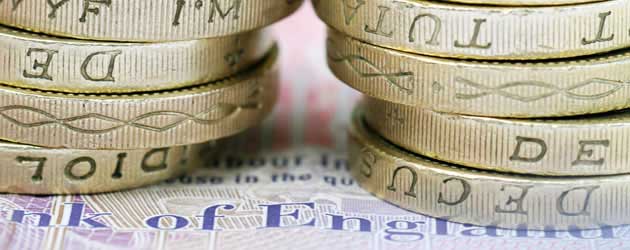
The Pound to Euro exchange rate (GBP/EUR) hit a 6-week high of 1.1822 yesterday as Eurozone bank run fears were exacerbated by comments from Eurogroup President Jeroen Dijsselbloem suggesting that depositors in other crisis-hit countries could be faced with similar haircuts in the future:
“What we’ve done last night is what I call pushing back the risks. If there is a risk in a bank, our first question should be ‘Okay, what are you in the bank going to do about that? What can you do to recapitalise yourself?’
If the bank can’t do it, then we’ll talk to the shareholders and the bondholders, we’ll ask them to contribute in recapitalising the bank, and if necessary the uninsured deposit holders”.
Markets reacted venomously to the Eurogroup leader’s comments, as they seemed to contradict previous statements from European Leaders that Cyprus was a “unique case”. Dijsselbloem indicated that raids on banking deposits could become commonplace in the currency bloc, and this undermined confidence in the banking sector, causing investors to speculate on the destructive prospect of mass withdrawals.
With markets wary of A) potential losses from future tax levies, and B) runs on the banks to prevent potential losses from future tax levies, the Euro shrunk by -1.15 cents against Sterling (GBP/EUR) yesterday afternoon. The single currency also shed -1.3 cents against the US Dollar (EUR/USD), -1.85 cents against the Japanese Yen (EUR/JPY), -1.7 cents against the Australian Dollar (EUR/AUD), -2.0 cents against the Canadian Dollar (EUR/CAD), and -2.0 cents against the New Zealand Dollar (EUR/NZD).
In order to contain the money supply in Cyprus and avoid capital flights, the Cypriot government has imposed a strict set of capital controls. As things stand there is a ban on electronic money transfers out of the country and a daily cashpoint limit of just €100. Banks were scheduled to open this morning, but a late-night announcement from the Cypriot Central Bank ensured that they will remain closed for “training purposes” for at least one more day. Speculation is mounting that they may not open again until after Easter.
Another cause for concern is that Dijsselbloem’s comments seem to suggest that the €700 billion European Stability Mechanism, which has helped to prop-up sentiment towards the 17-nation bloc over the past few months, may not be necessary. The ESM is aimed at pumping money directly into struggling member states’ banking sectors, rather than lending it to struggling sovereigns, in order to avoid the self-defeating cycle of rising debt piles, which has crippled the majority of southern Europe since the debt crisis erupted back in 2008.
Despite recent comments from European leaders suggesting that the worst of the crisis is behind us, the latest bout of: risk aversion, political uncertainty, contagion fears, and Eurozone exit concerns, seem to put a pretty good case forward for the contrary. Bank of England Governor Mervyn King argued that:
“Whichever crisis we are talking about, it is far from over. There will surely be many unexpected twists and turns before we can truly say that the crisis is indeed over”.
Federal Reserve Chairman Ben Bernanke went on to question the efficacy of the currency bloc: “There is a basic question: what is the right size for a single monetary policy?”
Indeed, the crisis does not appear to be over and the various pitfalls of the one-size-fits-all monetary policy are certain to damage the Eurozone further down the road. GBP/EUR is currently around 4 cents higher than February’s low of 1.1346.

Comments are closed.